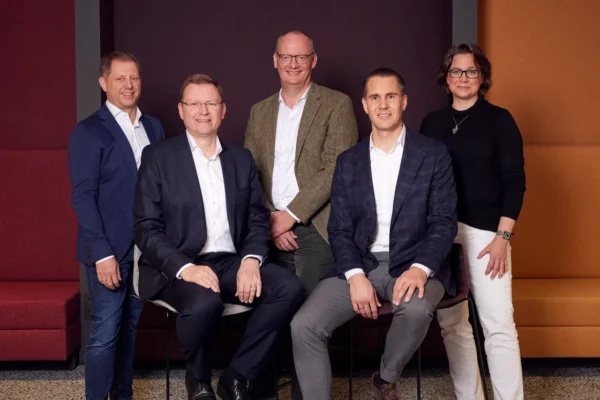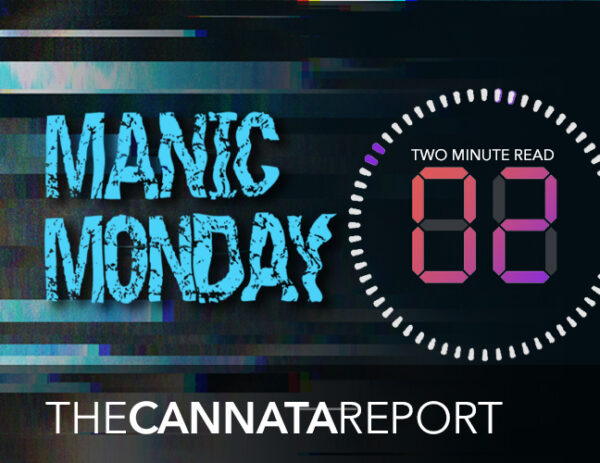Our Advisory Board shares its thoughts on the challenges and successes.
Above: Top row, left to right, Deb Dellaposta, Patrick Flesch, Jim George. Bottom row, left to right, Troy Olson, Doug Pitassi.
Dealer-vendor relationships can have their challenges. The Cannata Report speaks to many dealers throughout the year, on and off the record. We also take the pulse of the dealer community in our Annual Dealer Survey, where dealers rate their various partners and provide comments to explain their ratings. You’d be surprised, or maybe not, by some of the comments in our Survey or what dealers say about their vendors in our everyday conversations. Indeed, it can sometimes be a challenging relationship. However, it can often be a fruitful one as well.
In this issue, we asked The Cannata Report’s Advisory Board, comprising Deb Dellaposta of Doing Better Business, Patrick Flesch of Gordon Flesch Company, Jim George of Donnellon McCarthy Enterprises, Troy Olson of Les Olson Company, and Doug Pitassi of Pacific Office Automation, to discuss the relationships with their vendors, focusing on the signs the vendor cares about them as a partner, how to fix a problematic relationship, where vendors can improve, and what makes the dealer a good partner for their vendor.
What are the signs that your vendor cares about you as a partner?
Dellaposta: They protect your territory. That’s a big one. Maybe there is, in a particular market, somebody who all of a sudden has the ‘I’m going to buy the market’ mentality. I’m not talking about a dealer but a brand…going for market share. If [your partner] is responsive and helps you create a program to combat that, then that shows they care.
Flesch: I always look at how visible they are in our branches. For a vendor partner to be successful, you have to be present; you have to be in the sales bullpen with our sales reps, attending our sales meetings and training, going out into the field with our salespeople, and talking to customers. When I see our manufacturer reps doing that with our sales teams, I know they’re all in. That’s a significant sign that they’re committed to us.
George: The most important things are transparency, open dialogue, and communication. They always keep you informed of what’s happening. With some of our vendors, I don’t just see them as business vendors, I also see them as friends. We’re all in it for a reason, and how can we make that relationship magical so we can both win business? They get in front of the reps showing them things that they’re seeing at other dealers.
When they visit the office, they hold training sessions to help move things forward and then jump into the car with the rep [for a sales call]. Guess what that rep ends up selling because the product they’re selling is top of mind.
Olson: It’s the little things. What I love is that they know the people within our dealership. They take time to understand our dealership or when the regional sales manager makes calls with our reps. That means a lot. They know what they’re talking about. They’re just not talking about feeds and speeds. They care about delivering through to the bottom line. The business is important, but it goes much deeper than that. You build friendships and relationships.
I asked my grandfather when he was in his seventies what was his favorite part of his career? I thought it would be a sale he made because he was a sales guy, and he said, ‘I’m going to miss the friendships the most.’ There has to be trust, and friendships are important.
Pitassi: I pride myself on this. We hold our vendors accountable, but we also expect to be held accountable. I have a strong opinion about the traditional A3 relationship. It’s cool that Canon, Ricoh, Kyocera, etc., only authorize a handful of people in markets. We have an obligation as a dealer to understand their goals and hit their expectations. They need to be realistic.
Often, some partners don’t take the time to realize that the manufacturer is dependent upon us to fulfill a growth-minded budget. They can’t be unrealistic. And that same expectation goes the other way where, if we do well, we want to be protected and supported. We want competitive market programs. I am very appreciative of my vendor relationships and I’m very appreciative of the finance companies. I don’t think we could do this business without partnering with all of them.
What are the biggest challenges of dealer-vendor relationships?
Dellaposta: Obviously, there’s a lot of consolidation, a lot of mega-dealers. And I get it, but it’s challenging. Some of those dealers that they’re picking up have relationships with those brands, but then all of a sudden now they want to go national with that brand. It comes back to whether you are going to protect the dealers that are in a specific territory or are just going to authorize it all over the country. That’s a challenge for the manufacturer to juggle that. That has to be a concern for many independent dealers.
Flesch: Sometimes manufacturers forget that we’re running a business; we’re not just representing their product and trying to help them meet their number. We’re balancing all sorts of different challenges every day. When they understand that, the partnership is stronger. We have very unique needs at Gordon Flesch, and we expect our manufacturers to work with us on those things.
When we challenge them in those spots, we feel like with the volume of business that we do and the strength of the sales system that we have in place, it’s in their best interest to come along with our processes and workflows so that we can keep business moving at a good pace and with good continuity.
Olson: Common challenges are miscommunications and not getting the right information. What I’ve always appreciated about Mike [Marusic] and Doug [Albregts] at Sharp—and they’re our ‘A’ relationship—I always knew we could call them and get the truth if there was a challenge. Challenges will happen, but they will be honest with us, and we will find the best solution.
We have one right now where I can’t get toner for a certain A4 printer, and I’m about to make a call. How are we going to work around this? It’s one of our major accounts that has over 200 of these printers. I cannot run out of toner. They’re in health care. What do I do? I’ve got to go give them a couple of hundred printers. They’re that important of an account, we manage 6,000 to 8,000 devices for an account. And I have no doubt I will get support.”
Pitassi: Some companies, one of which is doing pretty good, are signing everybody up. It’s like, don’t sign everybody up. Sign up a few and have them hit your numbers. That causes a long-term problem. My outside sales team is an expense. And if they convince the customer to buy something that the customer could go online and buy somewhere else, you’re not respecting that investment that we make in the outside sales rep.
Fixing a Problem Dealer-Vendor Relationship
Flesch: You have to be upfront and honest about what your concerns are, why you’re concerned about certain things, and what you think needs to happen or needs to change. And if the partner’s willing to do that, how can we go ahead, how can we get that done? Being upfront and honest about challenges and places where you just aren’t happy with how things are going is the best way to handle it. If you let it fester like anything else, then all of a sudden, it blows up and becomes a bigger issue. Communication is critical to be able to overcome some of those challenges.
George: I get off the emails. Often, emails are not as personal, and you might get the wrong message. I might shoot them a note and say, ‘I’m going to be giving you a call about this.’ I want to talk to them. Or, even better, a Teams meeting, just so that the communication is there, and you can voice whatever you need to. And I can honestly say every single time [we’ve done that], we’ve been able to resolve any type of issues that are out there. When I have done it in email, I can promise you, many times, it does not get resolved.
Olson: We need to own our own challenges. Sometimes, we’re not producing enough or hope we’ll produce more or have high hopes, and we just don’t perform. And it does become dysfunctional because communication doesn’t happen on one side or the other. I receive letters where [the partner] is going in a different direction, and basically, you’re getting let go. That’s frustrating to me that I receive a letter rather than a phone call. But we have to own our part of that. It doesn’t mean I’m happy about it. That’s happened once or twice in my career where we received a letter because we didn’t perform well enough.
We’ve got to look in the mirror and understand, yeah, we didn’t do our part, but maybe they didn’t do their part either, and they could have been a better partner, like knocking on our door and saying, here’s where we’re going or can we fix this, instead of just sending me a letter. I’ve asked a couple of vendors, ‘Why did you ever set us up? You promised us this and this.’ Again, it’s about lack of communication and not enough meetings, and not working closely enough together.
Pitassi: No one’s perfect. Transparency is everything. We share info. I’d rather put it all on the table and share it. We have some issues right now with one of the manufacturers where their machines are not running well and it’s causing significant losses for us. And my transparency, I’m going to get into the weeds with them on sharing costs and where we put the accountability and where we put the ownership when machines are not running right, and there’s a multimillion-dollar difference between what they should be running like and what they are. Where’s the culpability?
Often, the causes are faulty parts in engineering. Sometimes, it’s our lack of skill or understanding [the device], so it could be us. But we need to get it on the table, and we need to be transparent. Most manufacturers are pretty accommodating to that. I try to view the total relationship, not the transaction that upsets me. I can’t judge my relationship on one deal. I have to judge my relationships in their totality. And for some of those challenges, I’m not afraid to tell them what I think. I also need to seek to understand their challenges before I can give them mine.
Room for Improvement in a Dealer-Vendor Relationship
George: “One of the things I’ve noticed, and this is across the board, with all of our vendors, they have decreased headcount. Having fewer bodies is not always the best thing, especially if you’re trying to move product. When I have somebody from one of my vendors here every week, well, guess what, that’s what my folks are going to sell the most. Some of my vendors have thinned their staff or the resources that they would provide.
One place I would like to see get ramped back up is to have the personnel that would come in and ride with the reps. Not just come in and say, ‘Here’s a quarterly review, here’s how you guys are doing. Okay, got to go.’
Pitassi: Some of the traditional A3 manufacturers need to be more competitive with their A4 printer products. They’re not competitive with HP and Lexmark. That’s a miss on their part. I don’t know if that’s an engineering thing or it’s too big of a cost.
Why Is Your Dealership a Good Partner?
Dellaposta: What I think should be important to them is making sure that the dealers that they partner with are truly focused on the best customer experience possible and not just about making a hit and then running, and not having the support to take care of the customer. When a manufacturer calls me and says, ‘We’re going to bring on XYZ company,’ and you’re like, ‘Do you know anything about them? Do you look into what kind of service they give and what kind of NPS (National Promoter Score) they have? Why would you want to partner with them?’
I can’t sit here and be like, oh well, here’s why a vendor wants to partner with me because I’m going to buy all their products, and I’m going to buy billions of dollars. I can’t say that to any of the brands I work with right now. We are doing the best we can to buy and sell as much of their product as we can. But at the end of the day, and I think it goes back to when Ricoh sold us their [MIF], how many customers said, ‘the service that you guys provide is so much better.’
The most important thing is whether you are putting your faith in the right kind of partner because at the end of the day, obviously, if you’re not a good provider and provide a good customer experience, that’s a reflection of the brand.
Flesch: It’s really simple for us. We have a very robust sales team. We’ve got a well-oiled machine. We’ve got roughly 85 sales reps out there. That is a hard infrastructure to build, and it takes years to cultivate. When manufacturers look at the potential of doing business with GFC, they know they are going to have a tremendous amount of opportunity in the marketplace because our salespeople are present, they are visible in their markets, they have great relationships, and they have fantastic opportunities at large organizations to move the needle from a revenue standpoint.
And when you have that infrastructure built and as solid as we have it, that’s a real opportunity for a manufacturer. They know walking in the door, they are sitting on a huge opportunity if they can get the mind share of the rep. So how good are your people at convincing them that their products are worthy? Because reps are very skeptical, they want to make sure they believe in trust in the product and in the support before they go out and really put their neck on the line and position it to the customer.
George: We’re very transparent. I will allow any of our vendors to go through our warehouse because I have no problem with them seeing any of our products or seeing our go-to-market strategy. I believe in communication. And then I like to have fun. At the end of the day, it’s about relationships.
We’re all here to grow our businesses. You’ll always know where you stand. I always want to know where I stand, but just full transparency, open communication, and be there also to assist. I get called a lot of times from dealer councils that I’ve sat on, just asking questions or, ‘What have you seen?’ And even if I don’t know, I’ll make some phone calls and get the information they need.
Olson: We must be a very good partner to our manufacturers. It’s critical. I’ll get calls from the regional managers, ‘I’m trying to hit a number. I need this.’ We will look at it and do anything we can to help them hit their numbers. We have an obligation to represent their brand better than anybody else in our markets. I mean that from a standpoint of honesty and integrity. We have to market and invest in our business and service. It starts with service.
You can’t lose sight of who we represent—Sharp, Ricoh, and HP. You must give them reasons why you’re the best choice. You have to represent those manufacturers just like it’s your brand because it is your brand. We have that obligation to continue to invest in that business and diversify with them.
Pitassi: We’re independent. We don’t have shareholders, and we don’t have the kinds of challenges you would have if you were private equity [owned] or public. I think that’s a plus. That makes us more flexible. Decisions are made pretty quickly here. I truly want to seek to understand the challenges that a manufacturer has because we’re equally obligated. We understand that and because of that we are a good partner.
We say at POA, ‘It’s got to be good for you, good for the customer, and good for POA.’ The triangle is pretty important. There can’t be one part of that triangle that collapses. The same thing goes for the manufacturer. If I do a deal with the manufacturer, it’s got to be good for the manufacturer and POA. You can’t have an interaction not be good for both parties.




